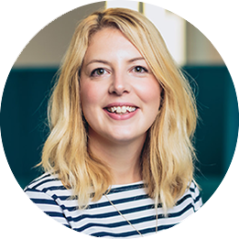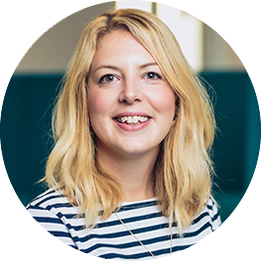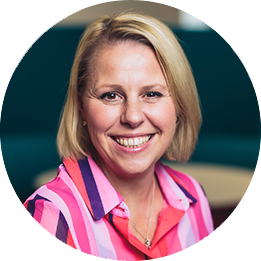This article is the first in our series to help you get started investing. Today we look at what you need to do before you even start thinking about investing – get your finances ship-shape.
Investing can be a great way to grow your money over the long term. But only when you’re ready. That means making sure you’re in a strong financial position first, and being aware of the risks of investing before getting started.
Check #1: Clear the debts
If you have any short-term debt, such as credit cards or payday loans, it’s a good idea to clear it before you start to invest. That’s because this type of debt usually has high interest rates, which could exceed anything you might stand to gain by investing. (This doesn’t include debts like mortgages and student loans.)
A good way to pay off debt quicker is to switch it to the cheapest option available, i.e. one with a lower interest rate. This’ll mean more of the money you’re paying goes towards the debt itself, rather than the interest it’s accruing.
Clearing any debt you have is a key part of getting yourself in the best financial shape before you start to invest. Another key part is making sure you’ve enough income and cash savings at the ready – more on which below.
Check #2: It’s all in the prep
Any money you invest should usually stay put for at least five years – to give it the best chance to ride out any market dips and bring you a return. So, to prepare for this, you’ll need to keep enough money in your bank and savings accounts for:
- Your ongoing living costs (rent or mortgage, bills and all the basics: food, fuel, fitness etc.)
- Any short- or medium-term big expenses (like an upcoming holiday or a new car)
- An ‘emergency fund’ that’s ready to go if something unexpected and costly crops up (e.g. house or car repairs)
Keeping a budget can help you work out how much money to allocate to your monthly living costs and any known upcoming expenses. So how much should you earmark for your emergency fund?
Well, the rule of thumb is to always have at least three months’ worth of outgoings in an easy-access savings account, to cover you for anything… unexpected. That’s just a minimum though, and many people save more than this – it all depends on what you feel comfortable with.
Once you’ve figured out how much of your income and savings you need to keep easily accessible in cash, you’ll also have a figure for what’s left over. And that’s the amount you could use to invest.
Check #3: Be risk aware
The headline here is: investing carries risk. Making a profit or generating income from your investments isn’t guaranteed – it’s possible to lose money as well as make it, leaving you with less than you started with. That’s why it’s generally said that you shouldn’t invest money you can’t afford to lose.
But on the flipside, without the higher risk of investing you wouldn’t have the potential for higher returns, and the opportunity to beat inflation rates. It’s also important to remember there isn’t a one-size-fits-all risk level for different types of investments. Individual stocks tend to carry more risk than bonds for example, and funds vary in their level of risk, but all should have a specific rating on their key information document.
When choosing your investments, be risk aware and make sure you’re comfortable with the risk levels and potential returns of your choices.
Check #4: Go long
Investing is often described as a ‘journey’. That’s because building up your investments can take time – it’s a marathon, not a sprint. And it’s also because buying investments should be viewed as a long-term alternative to keeping your money in savings.
As mentioned earlier, it’s usually best to allow at least five years for your investments to grow and ride out any bumps in the market. But in general, the longer you invest the better. You don’t want to be forced to take money out of your investments before they’ve had a real chance to grow.
So, here’s your reminder to make sure you’re prepared. It’s important to have the cash savings ready for anything you night need now, in the next five years, and to cover any costly surprises!
Check #5: Know who you’re investing with
Think carefully about who you choose to invest with – that’s the platform or app provider you use to open an account to invest.
It’s important to choose a provider that’s authorised and regulated by the UK’s financial watchdog – the Financial Conduct Authority (FCA) – that protects your cash and investments via the Financial Services Compensation Scheme (FSCS), and that offers you the accounts, investments and support which meet your needs.
There are lots of providers out there, all offering something slightly different, so do your homework before opening an account. Compare providers and their investment accounts by checking key features like costs and charges, investment options, support, and anything else important to you.
Are you ready to start investing?
If you’re happy that you’re in a financial position to start investing (checks #1 and #2), and you’re comfortable you know enough to get started (checks #3, #4 and #5) – then you could be ready!
Taking your first investing steps needn’t be scary. AJ Bell’s new, easy-to-use investment app, Dodl, has been built specifically for those completely new to investing. With a commitment to simple language and straightforward processes, Dodl aims to take the fear out of investing. And because it’s brought to you by AJ Bell, everything is authorised and regulated by the FCA, with your cash and eligible investments protected by the FSCS up to £85,000.
Finally, nothing in this article should be taken as advice. Money Matters doesn’t provide advice – so if you feel unsure about anything, it’s best to speak to a qualified and regulated financial adviser.
These articles are for information purposes only and are not a personal recommendation or advice. Remember that the value of investments can change, and you could lose money as well as make it.




